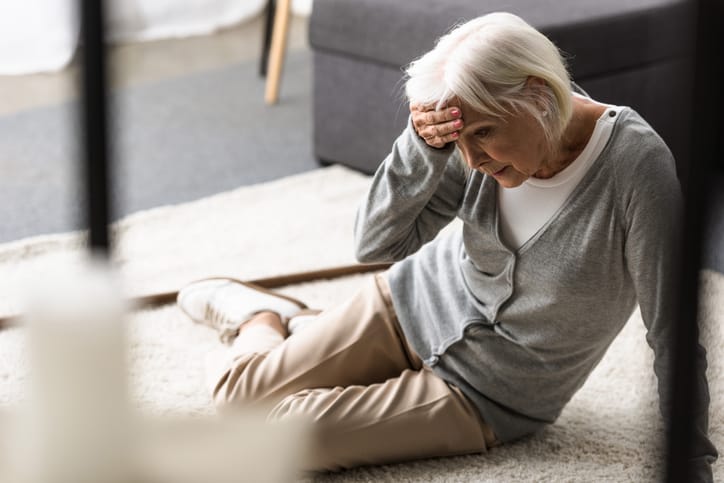
Dehydration Headache: Signs and Symptoms
Many of our clients at Santé are at increased risk of dehydration due to disease processes, medications, illness, or lack of mobility (and the Arizona heat often contributes), so preventing dehydration is an important component of many of our care plans. One of the most common symptoms of dehydration is a “dehydration headache.” Here’s everything you need to know.
Signs and Symptoms of Dehydration
Here are the telltale signs and symptoms to look out for when caring for a loved one:
- fatigue – sleeping more than usual or feeling unusually tired or weak
- urine that is dark amber in color, appears over-concentrated
- less frequent voiding (urinating fewer times per day)
- low blood pressure compared to your loved one’s baseline blood pressure
- lack of tears or dry mouth
- confusion, especially in older adults
- increased heart rate
- a headache in the back, front, or sides of the head
What Causes Dehydration Headache?
Dehydration headaches are most likely the result of a loss of fluid from the cells in the brain, causing the brain to shrink within the skull. The most common causes of lost body fluid include sweating, diarrhea, vomiting, and voiding. Those who suffer from dementia and those who are immobile are at higher risk of developing dehydration because they may not be able to listen to their body’s cues and increase fluid intake when they need to.
How to Treat a Dehydration Headache
The single best way to alleviate a miserable dehydration headache is to replenish the body’s fluids. Water, electrolytes – and even popsicles for those who are struggling to drink enough fluids – can help restore the body’s hydration. Additionally, stopping excess loss of fluid by treating nausea, vomiting, and diarrhea and avoiding the heat can make a big difference.
When to Get Help
If your loved one has been subject to dehydration, don’t be alarmed; older adults face a greater risk of dehydration than younger adults for a number of reasons. However, if your loved one is showing signs of dehydration often or you’re struggling to help them rehydrate when it happens, it might be time to get some assistance in the form of home health services.
To learn more about the gentle care provided by the staff at Santé, visit us online or in person today.



